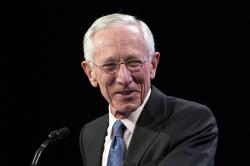The Brookings Institution is committed to quality, independence, and impact.
We are supported by a diverse array of funders. In line with our values and policies, each Brookings publication represents the sole views of its author(s).

Suzanne Maloney, Itamar Rabinovich, Mara Karlin, Vanda Felbab-Brown, Stephanie T. Williams, Sharan Grewal, Steven Heydemann, Dafna H. Rand, Aslı Aydıntaşbaş, Kemal Kirişci, Hady Amr, Constanze Stelzenmüller, Pavel K. Baev, Steven Pifer, Ryan Hass, Tanvi Madan, Lynn Kuok, Michael E. O’Hanlon, Caitlin Talmadge, Joshua Rovner, Samantha Gross, William A. Galston, Scott R. Anderson +18 more
March 3, 2026


